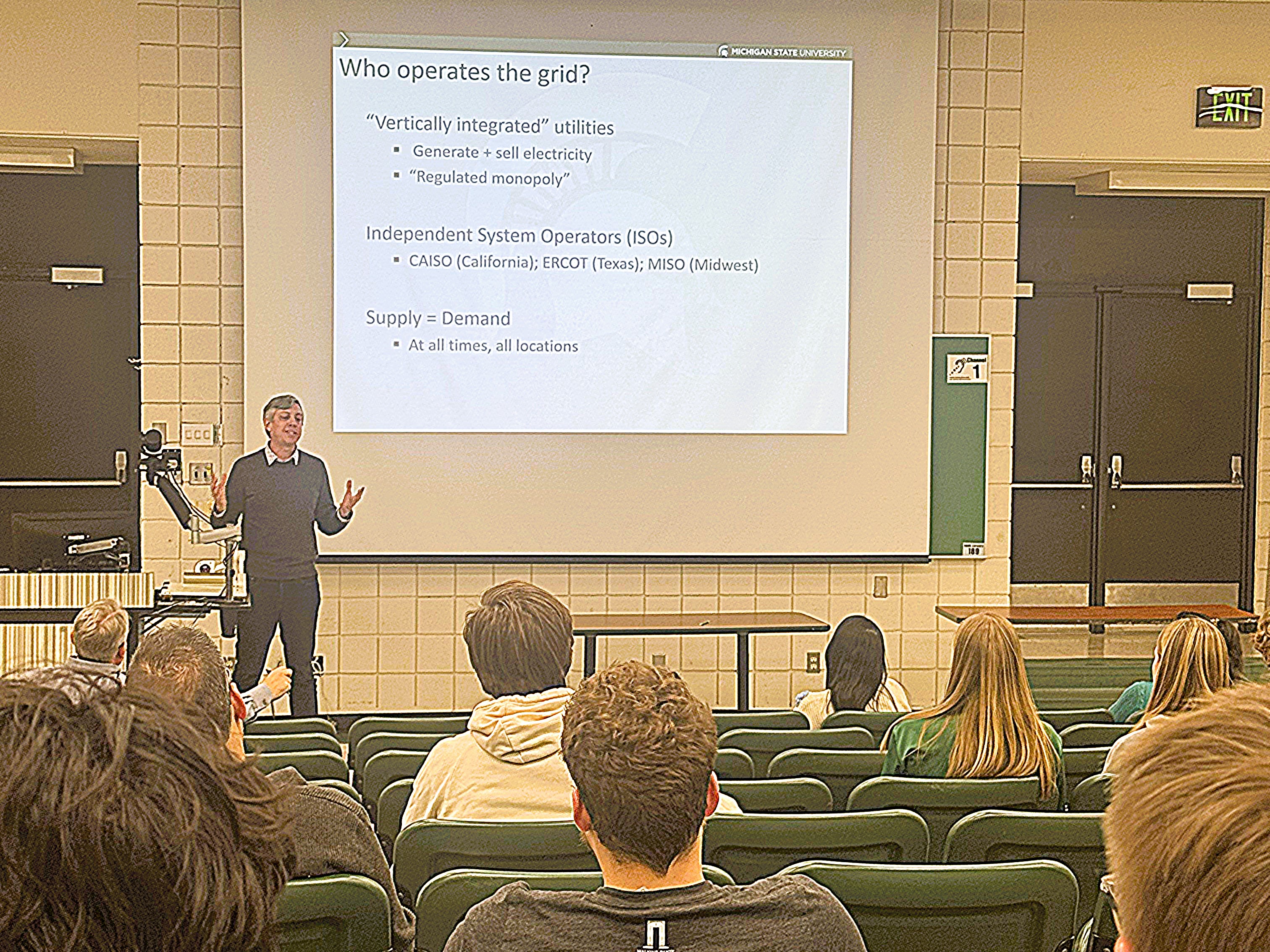
Professor Justin Kirkpatrick calls our U.S. electrical grid the “largest machine in the west,” and has devoted his research to understanding its human and economic relationships. He is an assistant professor of economics in the Michigan State University Department of Economics.
"I study how and why households make decisions about their energy consumption — how much to heat, when to invest in energy efficiency or renewables like solar -- and how large numbers of households making these decisions can affect the wholesale electricity markets that our utilities use to purchase the electricity they deliver to us,” Professor Kirkpatrick said.
He became interested in the topic because the environmental impacts of energy production are substantial, and they do not have a fixed price. Because of this, the decisions an individual household makes can have varying impacts on the environmental costs. Better understanding this relationship allows us to account for those costs.
“Even in these divided times, we all want clean air and clean water, and we all want affordable energy that doesn't cost us a clean environment,” he said. “As new technology like battery storage and heat pumps become available, it's of growing importance to understand how consumers will react, how electricity markets will react, and what sort of environmental impacts we'll face.”
To illustrate his research further, Professor Kirkpatrick recently published a paper that estimates the discount rate that households use when considering the savings from an investment in rooftop solar. The interesting aspect of this paper is that he used household-level data from Google Project Sunroof to estimate this discount rate for different levels of household wealth.
“With high start-up costs, we show that low-wealth homeowners discount future savings substantially more than do high-wealth homeowners,” he said. “This work helps explain why uptake of rooftop solar in many markets is dominated by high-wealth households, when lower-wealth households stand to save just as much over the lifespan of a solar installation. It also allows us to understand the welfare consequences of solar subsidies under a variety of different reforms.”
In addition to his research, Professor Kirkpatrick teaches undergraduate econometrics (EC420), and data analytics (EC242). Both courses focus on quantitative analysis, but with two very different approaches.
This year, Professor Kirkpatrick has extended his teaching time to creating electrical grid presentations about his research to engage both alumni and undergraduates.
“One of the main advantages of being enrolled and graduating from a major research university is the chance to learn from the people actually doing the research behind policy and major economic decision-making,” said Professor Steven Haider, chair of the MSU Department of Economics. “As a land-grant university, our research is supposed to serve everyone, and Justin’s research with the electrical grid is an example of that.”
To learn more about the MSU Department of Economics, visit econ.msu.edu.
By Katie Frey

